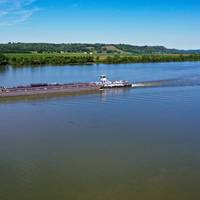How to Stop Injured Vessel Crew from Calling My Law Firm

For 20 years, I represented operators of OSVs, jack-ups, semi-submersibles, oil and gas production platforms, harbor tugs, towboats and barges in state and federal court personal injury litigation arising in the Gulf of Mexico, across the Great Lakes and on the inland waterways. For the last decade or so, I have been representing injured crew. In the case of a death or serious injury, sometimes there is little a vessel operator can do to prevent being sued. In my experience, though, many expensive lawsuits could have been avoided had the marine employer handled the situation differently.1.
Fitzgerald Honored as he Retires from the US Coast Guard Reserve

Freehill Hogan & Mahar LLP Partner Daniel Fitzgerald retired from the U.S. Coast Guard Reserve in a ceremony at U.S. Coast Guard Headquarters in Washington D.C., this summer.Rear Admiral Melissa Bert presided over the ceremony, which was attended by family, friends and Coast Guard colleagues who worked with Fitzgerald over the past 28 years. Fitzgerald retired from his last duty assignment in Washington D.C. where he served as the Senior Reserve Judge Advocate (RJAG) for the entire Coast Guard Reserve.
USCG Guidance and Reporting Marine Casualties

U.S. Coast Guard Guidance Helps to Bring some Clarity to the Debate. In July 2015, the U.S. Coast Guard released Navigation and Vessel Inspection Circular 01-15 (“NVIC”), titled Marine Casualty Reporting Procedures Guide with Associated Standard Interpretations. The purpose of the NVIC is to assist vessel owners and operators in understanding the marine casualty reporting requirements, which many in the industry think are about as clear as mud. Confusion as to what constitutes a marine casualty and what incidents need to be reported has persisted in the marine industry for years.
Marine Casualty Reports – Clarified

So you think you know when to make a marine casualty report? There has been a lot of confusion over the years as to when to make a marine casualty report with regard to certain incidents. Yet, although the Coast Guard constantly urges industry to make required reports, it has never promulgated national guidance to promote consistency in reporting based on uniform interpretation of the regulatory standards – until now. Specifically, the Coast Guard issued a Notice of Availability and Request for Comments (Notice) on January 14…
To Report or Not to Report - That Should Never be the Question

In the realm of marine casualties and incidents, each case has its own set of facts, cast of mariners and vessels involved and, frequently, sharp differences of opinion regarding same. The one common denominator of most marine casualties, however, is the requirement to report them to the U.S. Coast Guard (U.S.C.G.). While what defines a marine casualty is often in the eyes of the beholder/mariner, it is much more prudent to err on the side of caution and, when in doubt, report it using Form CG-2692.
“Immediately” Means Now!

U.S. By Frederick B. Most commercial mariners and their vessel operating employers probably know that when certain significant vessel-related events occur, these must be reported to the U.S. Coast Guard. In my experience, however, there is widespread uncertainty in the marine industry about what must be reported and, more significantly, when. Many companies learn the hard way about these requirements and end up paying healthy fines — anywhere from several hundred to thousands of dollars — for failing to “immediately,” as the regulations require, report such events.









